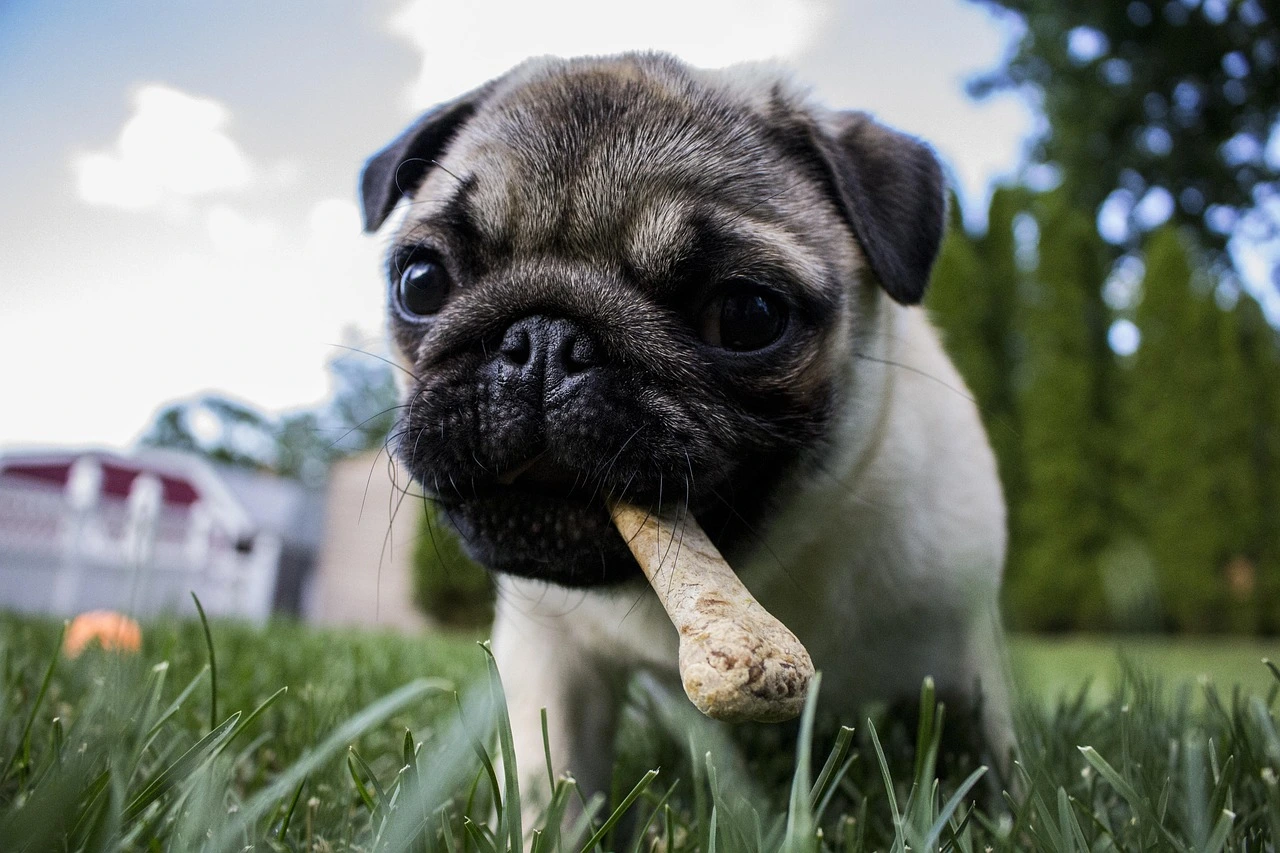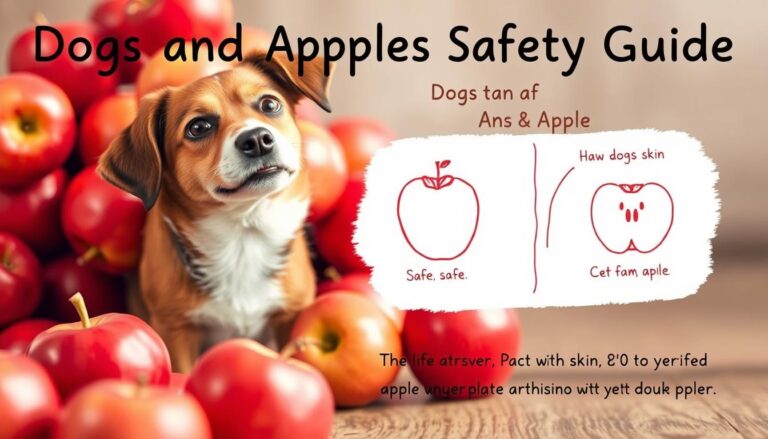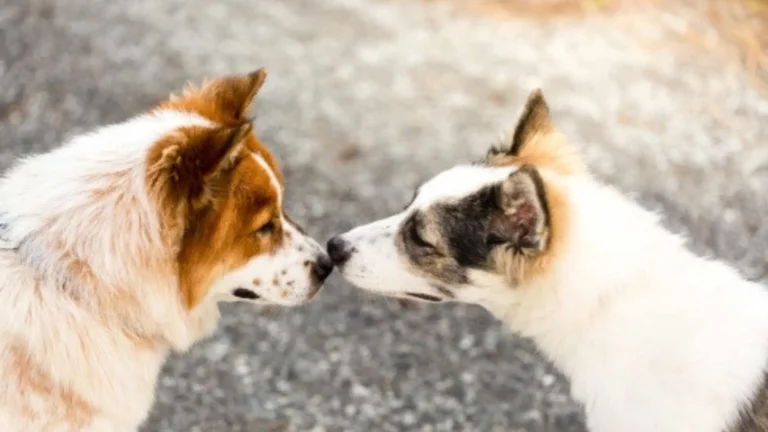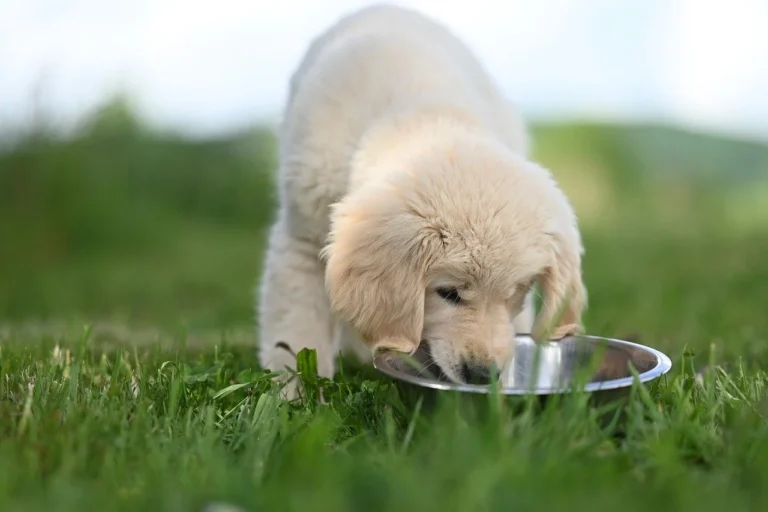My Dog Swallowed a Chicken Bone Without Chewing – Steps to Take
Your heart races as you watch your furry companion gulp down a chicken bone. Panic sets in. What happens now? Take a deep breath. Thousands of pet owners face this exact scenario every year.
Understanding the right steps can make all the difference in your dog’s health and safety.
When your dog swallowed a chicken bone without chewing, it’s crucial to stay calm and assess the situation carefully. Not every bone ingestion leads to an emergency, but knowing how to respond can prevent potential complications.
Dog ate chicken bone emergencies require quick thinking and strategic action. This guide will walk you through the critical steps to protect your pet’s well-being. It will help you navigate this stressful moment with confidence.
Understanding the risks and immediate actions can turn a potentially dangerous situation into a manageable experience. Let’s explore what you need to know when your dog swallowed a chicken bone without proper chewing.
Table of Contents
Immediate Actions When Your Dog Swallows a Chicken Bone
It’s scary when you find out your dog ate a chicken bone. You need to act fast to keep them safe. Knowing what to do right away can stop serious problems and keep your dog healthy.
Check for Choking Signs
Watch for signs if your dog ate a chicken bone:
- Excessive pawing at the mouth
- Gagging or retching sounds
- Difficulty breathing
- Panic or distress
- Inability to swallow
Monitor Breathing and Behavior
Keep a close eye on your dog after they swallow a bone. Look out for:
- Unusual whimpering or discomfort
- Decreased appetite
- Changes in drinking habits
- Visible signs of pain
- Unusual posture or movement
Contact Your Veterinarian
It’s important to get help right away if your dog swallows a bone. Your vet can give advice that fits your dog’s needs.
Never try to take out the bone yourself or make your dog vomit without a vet’s say-so.
Vets say to stay calm and get them checked out. This helps keep your dog safe and avoids serious harm from the bone.
Understanding the Risks of Chicken Bone Ingestion
When your dog swallows a chicken bone, it can lead to serious health issues. It’s important for pet owners to know these risks. Even if your dog seems okay, the dangers are real and shouldn’t be ignored.
Can dogs digest chicken bones? No, they can’t. Cooked chicken bones are especially dangerous because they break easily. These sharp pieces can harm your dog’s digestive system.
- Choking hazards
- Potential gastrointestinal blockages
- Risk of internal punctures
- Potential digestive system damage
The main worries with chicken bones include:
- Esophageal Damage: Sharp pieces can hurt the throat lining
- Intestinal Perforation: Broken bones can puncture the stomach or intestines
- Blockage Risks: Bone fragments can block the digestive tract
Vets strongly advise against giving chicken bones to dogs. The risks are too high, making it better to prevent them. This is the best way to keep your dog safe and healthy.
My Dog Swallowed a Chicken Bone Without Chewing – What Happens Next
When your dog swallows a chicken bone, it’s important to know what might happen. The digestion process can be tricky and might be risky. This depends on the bone’s type, size, and your dog’s health.
Several factors influence what happens if a dog swallows a chicken bone. Most dogs can handle their food well. But chicken bones are different and need close watch.
Digestion Process Timeline
Can dogs digest chicken bones? It’s not a simple yes or no. The digestion process usually goes like this:
- 0-2 hours: Initial bone movement through digestive tract
- 2-12 hours: Stomach acid starts breaking down bone fragments
- 12-48 hours: Bone might dissolve fully or break down partially
Common Physical Reactions
Dogs may show different signs after eating a chicken bone:
- Mild discomfort
- Temporary changes in appetite
- Slight gastrointestinal disturbance
Warning Signs to Watch For
It’s key to spot signs of intestinal blockage in dogs. Look out for these warning signs:
| Symptom | Potential Severity |
|---|---|
| Persistent vomiting | High risk |
| Bloody stool | Critical concern |
| Extreme lethargy | Immediate veterinary attention needed |
Always consult your veterinarian if you observe any concerning symptoms after your dog swallows a chicken bone.
Why You Should Never Induce Vomiting
When your dog eats a chicken bone, you might think to make them vomit. But don’t do it! Forcing them to vomit can lead to a serious emergency.
Trying to make them vomit can cause big problems. Sharp bone pieces might:
- Tear the esophagus during upward movement
- Create additional internal injuries
- Become lodged in critical passages
Vets strongly advise against self-induced vomiting. The risks are too high during a dog ate chicken bone emergency.
“Never attempt to induce vomiting without professional medical guidance,” warns veterinary experts.
Instead of trying home remedies, do this:
- Stay calm
- Contact your veterinarian immediately
- Follow professional medical advice
Professional help keeps your dog safe and prevents serious complications from chicken bone ingestion.
Differences Between Raw and Cooked Chicken Bone Dangers
Knowing the dangers of chicken bones for dogs is key for pet owners. Not all bones are the same, with big differences between raw and cooked chicken bones. These differences can affect your dog’s health.
Cooked chicken bones are much riskier for dogs than raw ones. They become brittle and can splinter easily. This can lead to sharp pieces that might hurt your dog’s digestive system.
Raw Bone Safety Considerations
Raw chicken bones are generally safer for dogs. They are softer and less likely to break into sharp pieces. Dogs can usually digest raw bones safely, but it’s still important to watch them.
- Raw bones are softer and more pliable
- Less likely to create sharp fragments
- Closer to a dog’s natural diet
Cooked Bone Risk Assessment
Can dogs digest cooked chicken bones? No, they can’t. Cooked bones become dangerous objects that can cause serious harm inside your dog.
| Bone Type | Digestibility | Potential Risks |
|---|---|---|
| Raw Chicken Bones | Moderate | Low risk of internal damage |
| Cooked Chicken Bones | Very Low | High risk of punctures, blockages |
Pet owners should always choose their dog’s safety over any potential enjoyment. Avoiding cooked chicken bones is best to prevent serious harm.
Signs of Complications and When to Seek Emergency Care
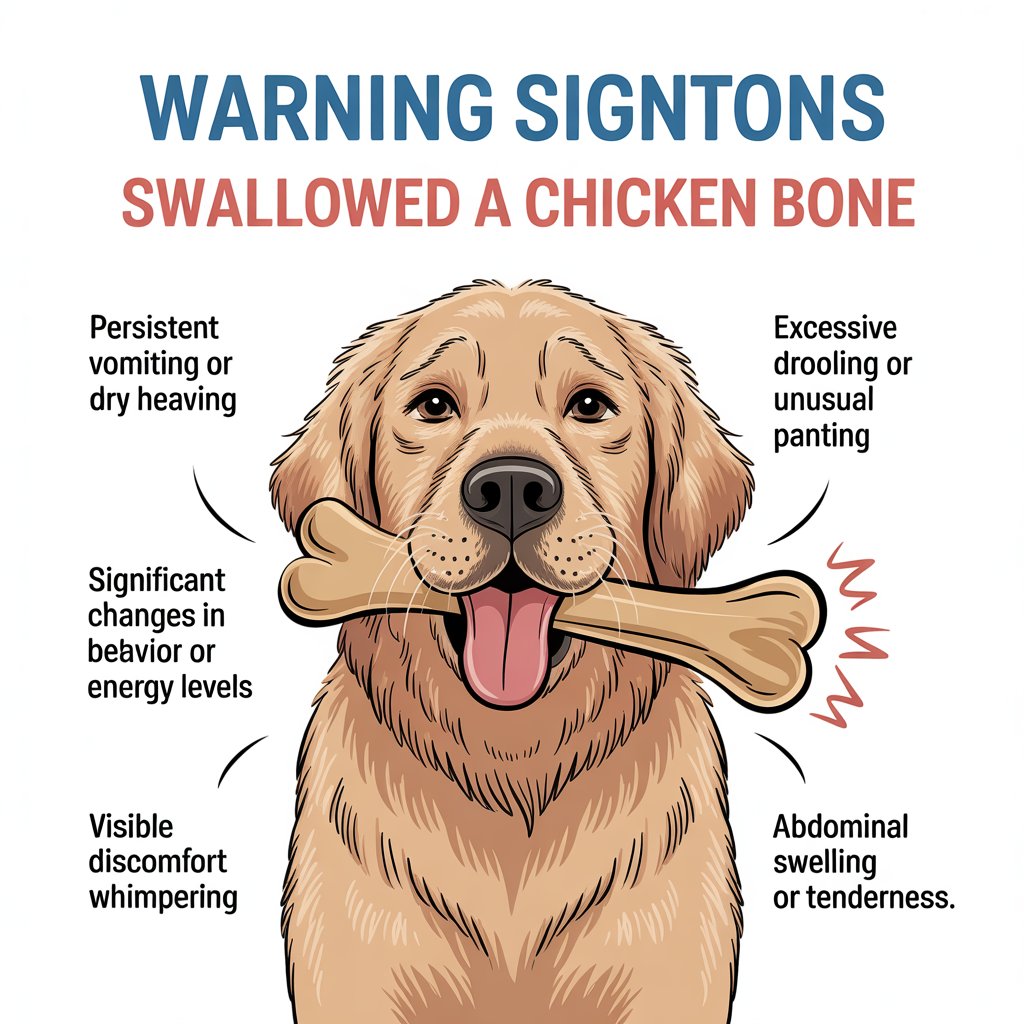
When your dog swallows a chicken bone, it’s key to spot the signs of blockage. Some symptoms need quick vet care for your dog’s safety.
Look out for these warning signs of a serious issue:
- Persistent vomiting or dry heaving
- Excessive drooling or unusual panting
- Significant changes in behavior or energy levels
- Visible discomfort or whimpering
- Abdominal swelling or tenderness
Some symptoms are urgent and need vet help right away. If your dog shows any of these, call your vet fast:
| Symptom | Potential Severity |
|---|---|
| Bloody stool | High risk of internal injury |
| Complete loss of appetite | Possible intestinal obstruction |
| Constant abdominal pain | Potential serious complications |
Getting your dog to a vet quickly can prevent serious harm. Your fast action and watchful eye could save your dog’s life.
Dietary Recommendations During the Monitoring Period
After your dog eats a chicken bone, it’s key to watch what they eat. The right food can help their digestive system and prevent problems.
Vets say a smart plan is needed for feeding during recovery. This helps your dog’s body heal.
Recommended Food Types
Your dog should eat foods that are easy to digest. These foods help with healing and reduce irritation:
- Boiled chicken (skinless and boneless)
- Plain white rice
- Soft, canned plain pumpkin
- Cottage cheese (low-fat)
- Bone broth
Feeding Schedule Adjustments
Change your dog’s meal times to aid in digestion:
| Time Frame | Feeding Recommendation |
|---|---|
| First 24 Hours | Small, frequent meals (1/4 normal portion) |
| Days 2-3 | Gradually increase meal size |
| After 3 Days | Return to normal diet if no complications |
“Gentle nutrition can help your dog’s body process potential bone fragments safely.” – Veterinary Nutrition Expert
Important: Always consult your veterinarian if you notice any unusual symptoms during this monitoring period.
Treatment Options and Veterinary Procedures
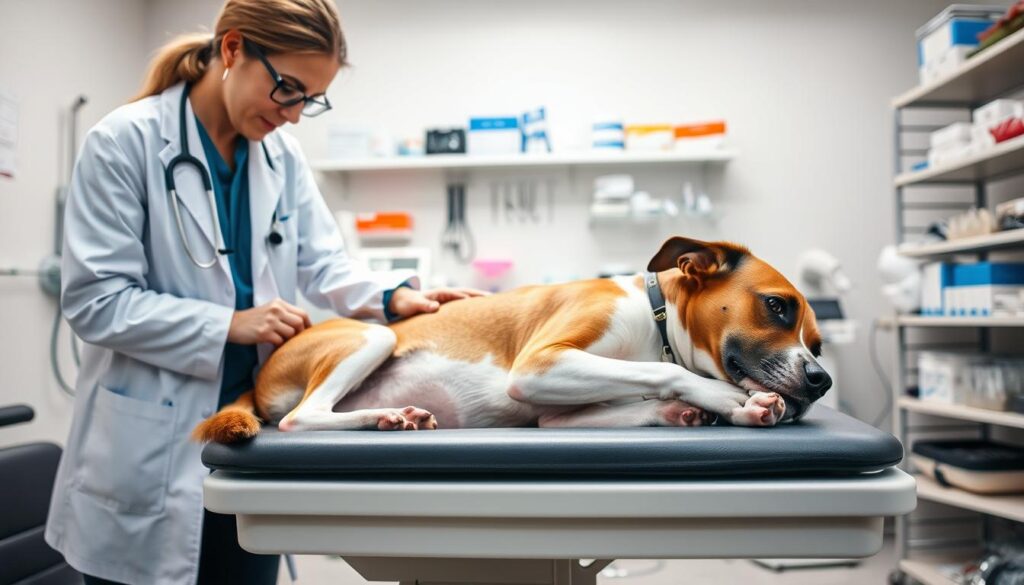
When your dog swallows a bone, it’s a big deal. Quick vet care is key to avoid serious health problems. Your vet can help stop these issues before they get worse.
Your vet will start by checking your dog thoroughly. They might use:
- Physical examination
- X-ray imaging
- Potential ultrasound screening
How to treat your dog depends on the situation. Here are some possible steps:
- Fluid therapy to prevent dehydration
- Specialized gastrointestinal diet
- Probiotic supplements
- Pain management medications
If the problem is serious, surgery might be needed. Your vet will decide if they should remove the bone through a tube or surgery.
The cost and how complex the treatment is can vary a lot. Your vet will make a plan just for your dog. They’ll consider your dog’s age, health, and the problem.
Always prioritize professional veterinary guidance when dealing with potential bone ingestion complications.
Prevention Strategies for Future Incidents
To keep your dog safe from cooked chicken bones, you need to be proactive. Knowing the risks helps you make your home safer for your pet.
Stopping a dog from eating chicken bones starts with safety steps at home and during meals.
Secure Food Storage Techniques
- Use trash cans with tight-fitting, lockable lids
- Store food waste in sealed containers immediately after meals
- Keep kitchen counters clear of potential bone scraps
- Teach family members about proper food disposal
Training and Supervision Tips
- Train your dog with strong leave it and drop it commands
- Supervise your dog during meal preparation
- Create designated eating areas away from food preparation zones
- Use positive reinforcement when dogs ignore food scraps
Regular training and clear rules can lower the chance of your dog eating chicken bones. Always watch your dog around food and during meals.
If your dog has trouble controlling impulses around food, consider professional training. A trainer can give you specific ways to stop your dog from scavenging for food.
Conclusion
If your dog swallows a chicken bone, it’s important to stay calm and act fast. Getting your dog to the vet quickly is key. This helps keep your pet safe and avoids bigger problems.
First, call your vet and watch your dog closely for a few days. Most dogs do well with the right care. Even though it’s scary, many dogs get better without needing a lot of treatment.
To keep your dog safe, teach them not to grab food and make sure they eat in a safe place. Knowing what to do can help a lot. This way, you can lower the chance of your dog eating something harmful.
Always listen to your vet if your dog eats a chicken bone. They know how to keep your dog safe. With the right help, your dog can get through this okay.

